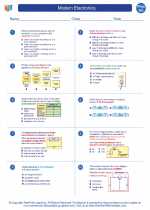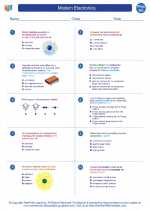Universal Gravitation Study Guide
Introduction to Universal Gravitation
Universal gravitation is a fundamental force of nature that describes the attraction between all objects with mass. It was first described by Sir Isaac Newton in the 17th century.
Newton's Law of Universal Gravitation
According to Newton's law of universal gravitation, the force of gravity between two objects is directly proportional to the product of their masses and inversely proportional to the square of the distance between their centers. The formula for this gravitational force is given by:
F = G * (m1 * m2) / r2
Where F is the gravitational force, G is the gravitational constant, m1 and m2 are the masses of the two objects, and r is the distance between their centers.
Gravitational Constant
The gravitational constant, G, is a fundamental constant that appears in Newton's law of universal gravitation. Its value is approximately 6.674 × 10-11 N(m/kg)2.
Gravitational Field
The gravitational field is a concept used to describe the influence of a massive object in the space around it. It is a vector field that represents the force experienced by a test mass placed at any point in space.
Study Tips
- Understand the concept of gravitational force and its mathematical representation.
- Practice solving problems involving the calculation of gravitational force between two objects.
- Learn about the applications of universal gravitation, such as the motion of planets and satellites.
- Review the concept of gravitational potential energy and its relation to universal gravitation.
- Explore the historical development of the concept of universal gravitation and its impact on our understanding of the universe.
[Universal Gravitation] Related Worksheets and Study Guides:
.◂Physics Worksheets and Study Guides High School. Modern Electronics

 Worksheet/Answer key
Worksheet/Answer key
 Worksheet/Answer key
Worksheet/Answer key
